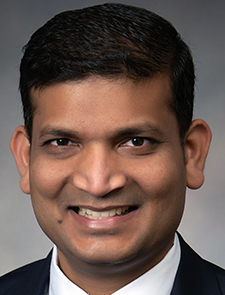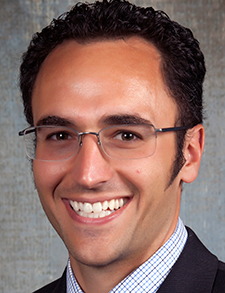Inpatient beds in Kentucky run the gamut of locations. There are academic medical centers in Lexington and Louisville, a Fort Campbell field hospital along the Tennessee border, and the rural outposts of the state’s southwestern counties (roughly equidistant from Louisville and Little Rock, Ark).
So it’s no accident that the Kentucky chapter of SHM dedicates a lot of time, effort, and money to ensure it represents them all.

Dr. Talari
“It is important that we involve everyone, not just hospitalists from academic medical centers, to have this sense of community, because most of the hospitalists practice in the community centers, and we need their voice,” said Preetham Talari, MD, MBA, CPE, SFHM, associate chief of quality and safety in the division of hospital medicine at UK Healthcare in Lexington. “We made a conscious effort to involve, highlight, and engage hospitalists across the state.”
There are nearly 70 chapters nationally, with some states having multiple chapters to represent different regions. But Kentuckians take state pride seriously, whether it’s high school basketball or hospital medicine.
The chapter, formed in 2016, earned itself a Rising Star Award from SHM just a year later, and for the past few years has integrated a chapter-sponsored Research, Innovations, and Clinical Vignette (RIV) poster competition into the Heartland Hospital Medicine Regional Conference.
The chapter uses financial support from the SHM Chapter Initiative Fund program to fund that RIV, while the chapter uses its own funds to highlight members, celebrate National Hospitalist Day, encourage fellowships via SHM, and produce a quarterly newsletter. The support has helped grow the membership rolls from 146 in 2016 to 249 at the end of last year. Plans for future investment include tackling the state’s opioid crisis by presenting best practices to deal with substance-use disorders.
Dr. Talari takes pride, not in just the geographic and practice-type diversity of the chapter, but he boasts that chapter leadership also includes those medical professionals who work hand-in-glove with hospitalists. To wit, the chapter’s treasurer is Jacque Young, DNP, APRN, a nurse practitioner at the University of Louisville Hospital.
In a state like Kentucky, community hospitalists are always important.
And in a time like the coronavirus pandemic, that’s ever more true.

Dr. Sweigart
“Lots of things have highlighted the importance of community hospitalists, I think none greater, perhaps, than COVID-19,” said chapter co-founder Joseph Sweigart, MD, SFHM, a Team Health hospitalist at Georgetown Community Hospital in Georgetown, a northern suburb of Lexington.
“The academic medical centers were full, and care was being delivered on the actual front lines in the communities. Being able to connect with and empower those people to help make sure their voice is amplified at the society level, particularly when they are in the trenches taking care of patients, is an important mission for our chapter. “
Dr. Sweigart, the chapter’s immediate past president, adds that supporting community hospitalists during COVID also had a clinical mission.
“Things are moving so fast now,” Dr. Sweigart said. “I trained in an era when guidelines are written every 10 years, and you’re recertified every 10 years. So, once you learn something, you were good for a decade. I think when you learned something with COVID-19, you were good for like 10 minutes or 10 days. SHM did a lot of things to push content out to help people stay current, even as things were changing so rapidly.”
To that end, Dr. Talari is particularly proud of the poster competition at the regional conference. Last year’s event was in person—the year before everything was virtual—and registration was free as a way to encourage greater engagement with medical students, residents, and their hospitalist attendings.
“There is usually talk about how critical-care specialists were at the front and center of the pandemic, but we have to highlight how hospitalists were also front and center,” Dr. Talari said. “We could highlight how much hospitalists contributed during this pandemic.”
It also doesn’t hurt that the Kentucky chapter can pick one winner to be automatically accepted into SHM’s annual convention.
“For many of us, myself included, the first time you go to a professional meeting, you’re like, ‘Oh, my gosh, I’m surrounded by my people, this is awesome,’” Dr. Sweigart said. “It’s totally intoxicating, and it’s something we hope helps bring more and more young, fresh energy and insight into the field and keep people excited about it.”
But while Kentuckians are rejuvenated by the annual conference—both professionally and personally—the motivation from a once-a-year event needs support from the local chapter to last year-round.
“What’s keeping the chapter running, particularly the past few years, when meetings have been limited, are our local communities,” he said. “That ability to collaborate across hospitals, across institutions, and across geographic barriers is more critical than ever.”
Richard Quinn is a freelance writer in New Jersey.
Proud of you my brother Dr Talari
You are and will be the inspiration for our medical and even non medical fraternity.